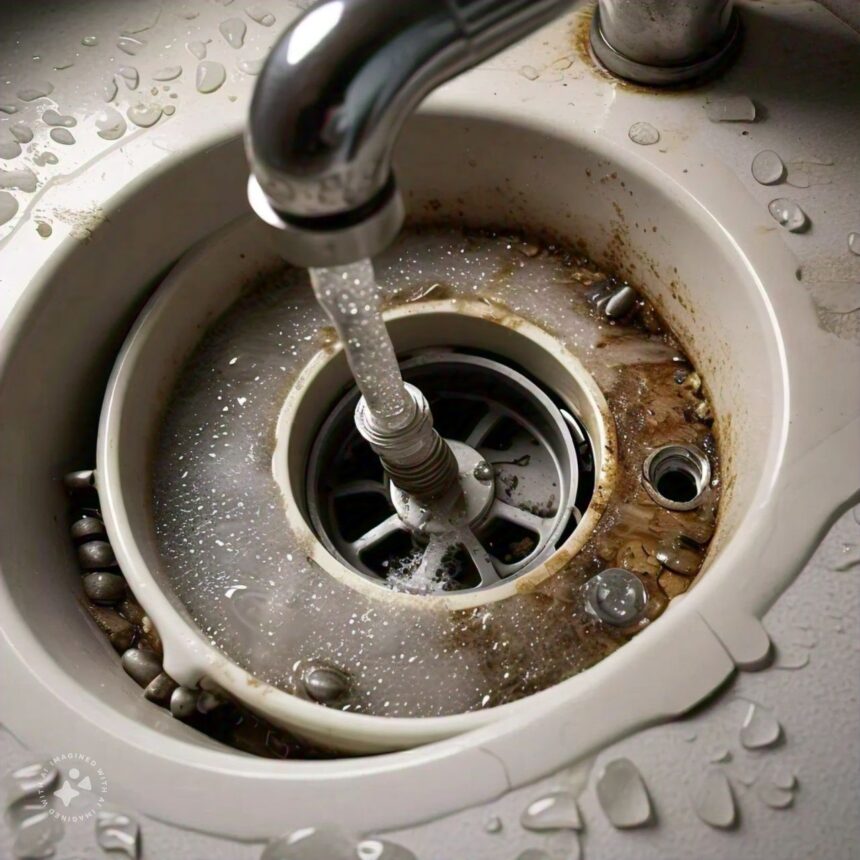Hard water, characterized by high mineral content, is a common issue in many households. While it might seem like a minor inconvenience, the effects of hard water on drains can be quite severe, leading to clogged pipes, reduced water flow, and increased maintenance costs. Understanding how hard water affects your drains and implementing effective strategies to combat scale build-up can significantly improve the efficiency and longevity of your plumbing system. This article explores the impact of hard water on drains and offers practical solutions to mitigate its effects.
I. Understanding Hard Water and Its Effects
What is Hard Water? Hard water contains high levels of calcium and magnesium minerals. When hard water flows through pipes, these minerals can precipitate out of the water, forming scale deposits. Over time, these deposits can accumulate and create various plumbing issues.
How Hard Water Affects Drains The primary impact of hard water on drains is the build-up of mineral scale. This scale can cling to the interior of pipes, narrowing the passage through which water flows. As a result, water pressure may decrease, and drains can become sluggish or even clogged. This build-up can also lead to more severe problems like pipe corrosion and leaks.
II. Identifying Scale Build-Up
Signs of Scale Accumulation Common signs that scale build-up is affecting your drains include slow drainage, frequent clogs, and a noticeable decrease in water pressure. You might also notice white or chalky deposits around faucets and showerheads.
How to Inspect Your Drains Regular inspections can help identify scale build-up early. Look for signs of water discoloration or reduced flow in your sinks and showers. For a more thorough inspection, consider using a pipe camera to check the interior of your plumbing system.
III. Effective Solutions to Combat Hard Water Scale
Install a Water Softener One of the most effective ways to combat hard water is by installing a water softener. A water softener works by exchanging calcium and magnesium ions in the water with sodium or potassium ions, thereby reducing the hardness of the water and preventing scale build-up in your pipes.
Use Descaling Agents Descaling agents can help dissolve existing mineral deposits in your plumbing. These products are typically added to your drains and left to work for a specified period before flushing with water. Regular use of descaling agents can help maintain clear and efficient drains.
Implement Regular Maintenance Regular maintenance is crucial for preventing scale build-up. Schedule routine plumbing inspections and clean your drains with a mixture of baking soda and vinegar. This natural solution helps break down minor scale deposits and keeps your drains running smoothly.
IV. Additional Tips for Improving Drain Flow
Install a Water Filter Installing a water filter at your main water supply can help reduce the amount of minerals that enter your plumbing system. Filters designed to remove hardness-causing minerals can complement a water softener and provide an extra layer of protection.
Ensure Proper Drainage System Design Ensure that your plumbing system is designed to handle the flow of water efficiently. Properly pitched pipes and adequate venting can help prevent water from stagnating and reduce the risk of scale accumulation.
Conclusion:
Hard water can significantly impact the efficiency and longevity of your drains, leading to a range of plumbing issues. By understanding the effects of hard water and implementing effective solutions such as installing a water softener, using descaling agents, and performing regular maintenance with the help of Drainage Care blocked drain southampton services, you can combat scale build-up and improve water flow in your drains. Taking proactive measures will not only enhance the performance of your plumbing system but also extend its lifespan and reduce the need for costly repairs. Keeping your drains in optimal condition ensures a smoother, more efficient plumbing experience and a healthier home environment.


